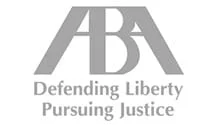- The Brickman Law Group
- 212-986-6840
- info@brickmanlaw.com
-
420 Lexington Ave., Ste 2811,
New York, NY 10170
Creativity. Dedication. Results.
The Law Offices of Neal Brickman, P.c. is Excited to Announce that Going Forward we will be known as the Brickman Law Group.
We are nationally renowned for achieving large-firm results while Providing Small-Firm Service & attention.
We are not interested in the traditional approach. we create new strategies to Best Serve Our Clients' Needs.

Our law firm specializes in providing comprehensive legal services to clients embroiled in complex commercial litigations, offering tailored strategies, expert guidance and diligent representation to navigate intricate disputes within the Federal and State Court system as well as in arbitrations.

Our law firm routinely represents employers and employees, with a focus on the financial services, entertainment and medical industries. Our attorneys handle matters concerning all aspects of employment law. Discover how our law firm takes the helm in navigating the intricate landscape of employment law.

Our lawyers have very extensive experience in customer-initiated cases against registered broker-dealers and their employees. Typically, these cases involve claims for unsuitable recommendations of securities, churning and excessive trading, failure to adhere to a written investment plan, unauthorized trading and other forms of fraud or breach of fiduciary duty.
We also regularly represent brokers against whom claims have been lodged by their former employers, clients and who are faced with regulatory investigations.
We help individuals and businesses navigate complex cases in employment law and commercial litigation. Our firm’s flexible billing arrangements let you focus on our relationship and results, not surprises on your invoices.



Founding Partner

Partner

Partner

Of Counsel

Of Counsel



